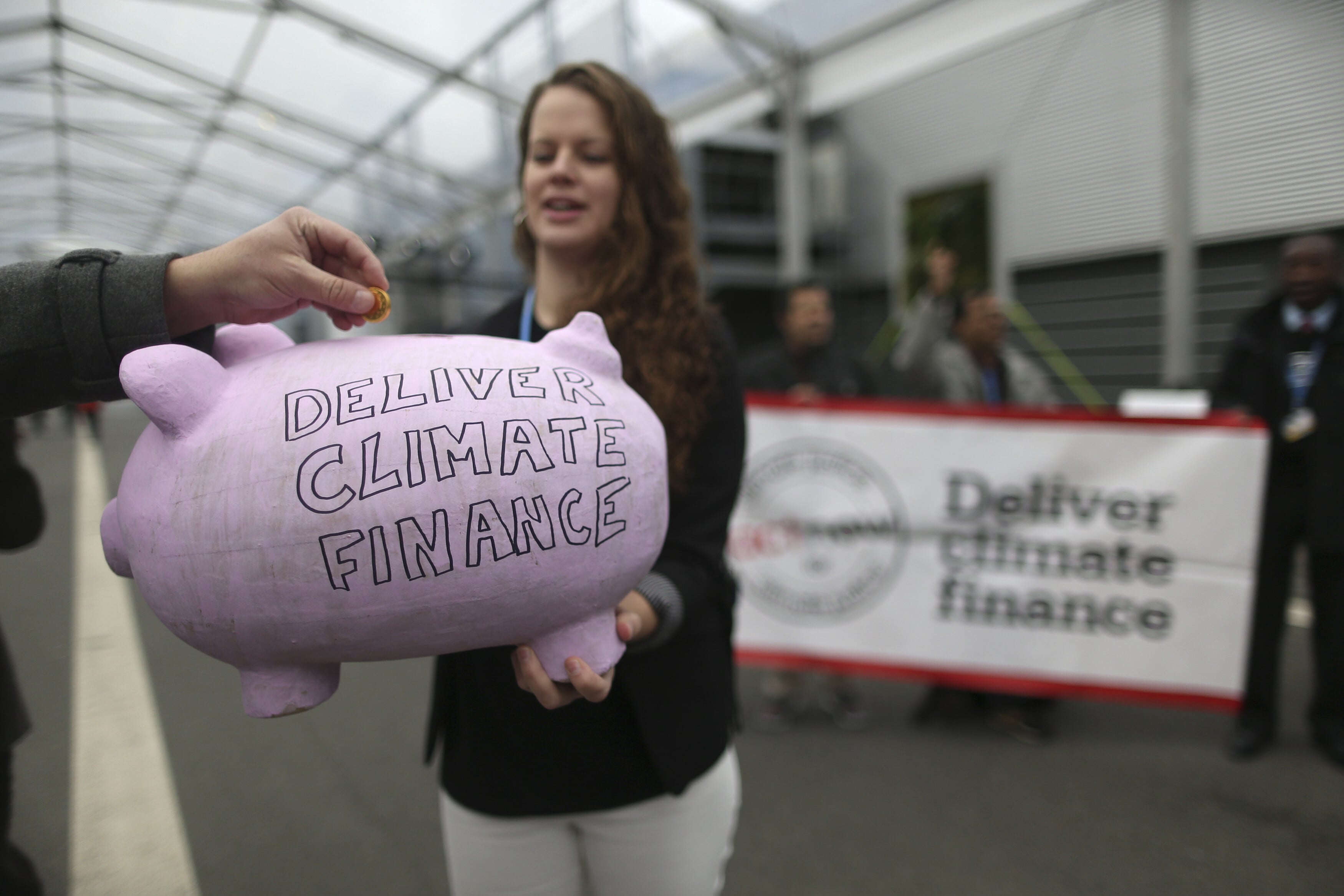The study of evolution is changing - is that a good thing?

Evolutionary biology today is a messy patchwork of several loosely connected subfields.
Image: Unsplash/Suzanne D. Williams
Stay up to date:
Science
Accept our marketing cookies to access this content.
These cookies are currently disabled in your browser.
- Researchers who study evolution are seeing how ecosystems will adapt to climate change in the future as the planet heats up.
- Some biologists and philosophers claim evolutionary biology needs reform, arguing that traditional explanations are holding back novel findings.
- Some go so far as to say that evolutionary theory itself is in crisis and must be replaced with something new.
- Here, an ecologist explains why evolutionary biology today is a messy patchwork of several loosely connected subfields.
How will life on Earth and the ecosystems that support it adapt to climate change? Which species will go extinct – or evolve into something new? How will microbes develop further resistance to antibiotics?
These kinds of questions, which are of fundamental importance to our way of life, are all a focus for researchers who study evolution and will prove increasingly important as the planet heats up.
But finding the answers isn’t the only challenge facing evolutionary biology. Charles Darwin’s theories might be over 150 years old but major questions about how evolution works are far from settled.
Evolutionary biology is now undergoing one of the most intense debates it has had for more than a generation. And how this debate plays out could have a significant impact on the future of this scientific field.
Some biologists and philosophers claim that evolutionary biology needs reform, arguing that traditional explanations for how organisms change through time that scientists have assumed since the 1930s are holding back the assimilation of novel findings.
Contemporary evolutionary biology, a vocal minority argue, is incomplete. The dominant and traditional view of the field is too preoccupied with how the genes in a population change over time. This neglects, these critics argue, how individual organisms shape their environments and adjust themselves during their lifetimes to survive and reproduce.
Some go so far as to say that evolutionary theory itself is in crisis and must be replaced with something new.
Not all biologists are convinced. Some argue that repeated calls for reform are mistaken and can actually hinder progress.
Modern evolutionary theory
The version of evolutionary biology that is still largely taught in schools has its origin in the modern synthesis. This fused Gregor Mendel’s theory that organisms inherit discrete particles (what we now call genes) with Charles Darwin’s theory of natural selection. Darwin suggested that environmental conditions weed out heritable traits which are unhelpful and promote those which offer organisms an advantage.
The modern synthesis aimed to unify biology, but it was dominated by a few subfields, particularly genetics and paleontology, and focused on how populations change their genetic make-up over time. From this perspective, organisms are objects and the raw material for natural selection.
Notably, the modern synthesis did not incorporate all fields. The study of how embryos develop and how organisms interact with each other and their environment (ecology) were largely left out.
Organisms are not, critics of the modern synthesis argue, passive objects of natural selection. Instead, they say, organisms are agents that change those environments.
A famous example is the beaver, which builds dams to survive and reproduce, changing its surroundings in the process. This tinkering in turn influences natural selection on itself and other species, thereby changing the beaver’s long-term evolution.
Organisms also inherit more than DNA. This challenges the modern synthesis’s assumption that traits an organism acquires during a single lifetime cannot be passed down.
There is cultural transmission: killer whales teach their children and grandchildren hunting skills and food preferences. Songbirds transfer nutrients to new generations in eggs just as humans give their offspring antibodies through breast milk. Some biologists say that these endowments can revitalise the study of evolutionary biology, diverting our attention from strict genetic inheritance.

Diversity is a strength
As an evolutionary ecologist with an interest in how organisms adapt to their environments, I am not as worried as some that the current version of evolutionary biology is incomplete. Neither am I particularly concerned about the limitations of population genetics.
Evolution can clearly be described as changing gene frequencies between generations. But this does not mean that population genetics is the only useful way to study evolution.
Biologists might disagree on what constitutes an evolutionary process, with natural selection and random changes in DNA being the two best studied processes. Evolutionary processes are not the only interesting aspect of evolution, though.
Evolutionary outcomes and the products of evolution – organisms and how they develop – also keep biologists busy. We have come to understand more about how genes and environments interact to shape the development of organisms. These insights from evolutionary developmental biology have clearly enriched our field.
That evolutionary biology is increasingly fractured does not worry me either, as long as we recognise that a plurality of approaches is not a weakness, but a strength. If physicists cannot agree upon a grand unified theory of the universe, why should biologists expect to agree on one beyond what we have already achieved? After all, organisms are much more complex than physical particles and processes.
To take another example from physics, light can be viewed either as a particle or a wave. This duality reflects how a single descriptor is not enough to fully describe the complex phenomenon of light.
If this works for physicists, why could evolutionary biologists not also use multiple ways of studying a process as complex as evolution, and things as complex as organisms? Why can we not see organisms as either agents capable of modifying their environments or objects subject to natural selection, depending on the context? These are two valuable and complementary perspectives.
Evolutionary biology today is a messy patchwork of several loosely connected subfields. This reflects the enormous diversity of phenomena that we study and the many interests of biologists.
We are united in accepting that natural selection on inheritance and random factors have jointly shaped organisms – but not by much more. Maintaining a coherent overview, either the modern synthesis or some extension to it, seems increasingly hopeless.
Giving up the search for a grand unified evolutionary theory will not hurt our field, but rather, liberate us. It will enable biologists to think more freely about the endless forms most beautiful that are constantly evolving and will continue to do so.
What’s the World Economic Forum doing about climate change?
Accept our marketing cookies to access this content.
These cookies are currently disabled in your browser.
Don't miss any update on this topic
Create a free account and access your personalized content collection with our latest publications and analyses.
License and Republishing
World Economic Forum articles may be republished in accordance with the Creative Commons Attribution-NonCommercial-NoDerivatives 4.0 International Public License, and in accordance with our Terms of Use.
The views expressed in this article are those of the author alone and not the World Economic Forum.
Related topics:
Forum Stories newsletter
Bringing you weekly curated insights and analysis on the global issues that matter.
More on Climate ActionSee all
Wee Kean Fong and Yvonne Zhou
July 29, 2025
Pranidhi Sawhney and Adam Skali
July 29, 2025
David Carlin and Sourajit Aiyer
July 28, 2025
Nasim Pour, Sebastien Cross and Joel Gould
July 28, 2025
Michael Wang
July 28, 2025
Naoko Tochibayashi
July 28, 2025







